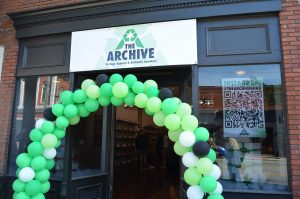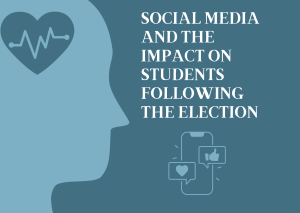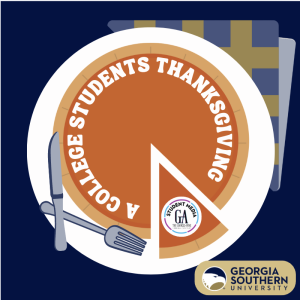A review of HOPE financial aid program changes
October 24, 2017
With the fall semester just halfway over for many Georgia Southern University students, many might be unaware of a few of the changes that have taken place to the HOPE Scholarship program and its affiliates.
HOPE Career Grant
Formerly known as the Strategic Industries Workforce Development Grant, the HOPE Career Grant allows students attending many of Georgia’s public universities and technical colleges to receive up to $500 a term for enrolling into majors that line up with in demand fields in Georgia. Students studying truck driving can receive a one-time grant up to $1,000.
According to the ajc.com, those fields include, but aren’t limited to, computer programming, computer technology, early childhood care and education, health science, practical nursing and more.
The program of study and number of hours you take determines how much money you would receive from this program.
In order to receive this money, you must meet the HOPE Grant eligibility criteria. This is separate from the HOPE Scholarship, but has many of the same requirements, according to gafutures.org.
- Meet HOPE’s U.S. citizenship or eligible non-citizen requirements.
- Be a legal resident of Georgia.
- Be in compliance with Selective Service registration requirements (if you’re a male).
- Meet academic achievement standards.
- Be in good standing on all student loans or other financial aid programs.
- Be in compliance with the Georgia Drug-Free Postsecondary Education Act of 1990.
- Not have exceeded the maximum award limits for any HOPE program.
To apply for this grant, you must submit either a Free Application for Federal Student Aid or the Georgia Student Finance Application.
HOPE budget boost
Gov. Nathan Deal’s 2018 fiscal budget will give $49.3 million to the HOPE Scholarship and the Zell Miller Scholarship for public colleges and universities. The budget will also add $515,441 to the HOPE Scholarship and Zell Miller Scholarship for private schools as well, according to the Georgia Budget & Policy Institute.
The budget increase is intended to help with the program’s growth, as well as allow more money to be awarded to eligible students. About $10.9 million will go towards the Zell Miller Scholarship, which has grown 12 percent, according to the GBPI.
The GBPI also states that the proposed spending for all of the HOPE financial aid programs is now at a total of $757 million. The fiscal budget for 2018 went into effect on July 1.
House Bill 801
Finally, HB 801, also known as the Rambling Wrecktification bill, has gone into effect this 2017-2018 academic year. The bill passed the Georgia House in early Febuary 2016 and the Senate in mid-March of the same year.
The idea behind the bill was to encourage students to take more science, technology, engineering and math classes without the stress of potentially losing their HOPE or Zell Miller scholarships. Another driving factor for this bill was the number of in demand technology jobs that the state of Georgia is aiming to fill as soon as possible.
Under HB 801, students taking specific courses would receive an additional half point to their HOPE GPA when a student earns a B, C or D. Additional points will not be added to a grade of A or F.
According to myajc.com this would translate to:
- 3.5 points instead of 3 points for a B
- 2.5 points instead of 2 points for a C
- 1.5 points instead of 1 point for a D
Students must maintain a 3.0 GPA to keep their HOPE Scholarship.
More information regarding the HOPE financial aid program can be viewed here.











